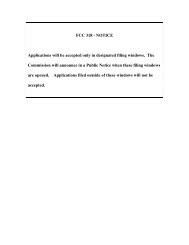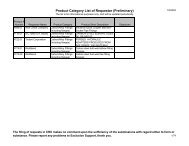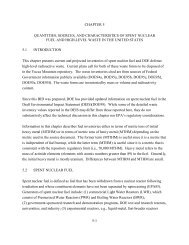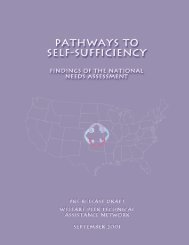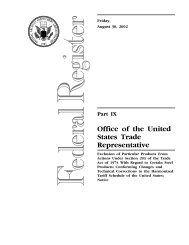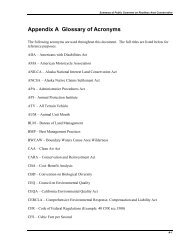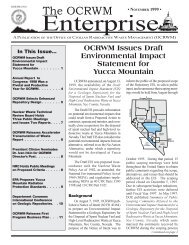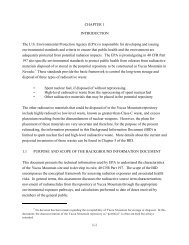E-Commerce Commission Press Kit
E-Commerce Commission Press Kit
E-Commerce Commission Press Kit
Create successful ePaper yourself
Turn your PDF publications into a flip-book with our unique Google optimized e-Paper software.
For a business to feel comfortable about using the Internet in communications with its suppliersand customers, it needs to be sure of the identity of the party at the other end of the transactionand that any agreement made electronically is binding.Today, a business verifies identities with passwords, electronic signatures and Internet Protocol(IP) addresses. Initiatives are currently underway to develop a more effective system of digitalcertification and authentication. The U.S. Government is promoting the development of aninternational convention to legally recognize digital authentication.The U.S. government also supports the development of both a domestic and global uniformcommercial legal framework that will recognize, facilitate and enforce electronic transactionsworldwide. Internationally, the U.S. government is working with the United Nations <strong>Commission</strong>on International Trade Law (UNCITRAL) which has completed work on a model law thatsupports the commercial use of international contracts in electronic commerce. The governmentis also encouraging the work of the International Chamber of <strong>Commerce</strong> which has issued modelcommercial code guidelines.Companies are also concerned about the potential for excessive taxation of the Internet. The U.S.Government believes that no new discriminatory taxes should be imposed on Internet commerce.It also believes that no customs duties should be imposed on electronic transmissions. Theapplication of existing taxation on commerce conducted over the Internet should be consistentwith the established principles of international taxation, should be neutral with respect to otherforms of commerce, should avoid inconsistent national tax jurisdictions and double taxation, andshould be simple to administer and easy to understand.Some companies express concern about the Internet’s current technical limitations. Those whoconduct EDI transactions over VANs have the confidence and experience that importantinformation will arrive at its destination, on schedule, intact. If any problems do arise, a singlenetwork service provider is accountable and responsible for resolving them.Companies expecting this level of service worry that the Internet offers no such guarantees.Because it is a public network that connects many smaller, interconnected networks and serviceproviders, there is no single entity responsible for ensuring that a message leaves one point andarrives, intact, at another. And, because companies have a need to transmit confidentialinformation, they want assurance that it remains secure.Companies are taking different approaches to address the current technical limitations. Some usethe Internet to purchase lower-value, indirect materials while keeping their higher-value, directmaterial purchases over VANs. Some rely on extranets, or “virtual private networks,” that limitaccess to a certain pre-qualified set of businesses and their partners.Sophisticated encryption products and firewalls are being used by some companies to protectprivacy and ensure the security of Internet transactions. Many others await a resolution of currentexport limitations on encryption software before they plan to increase their Internet business.22





